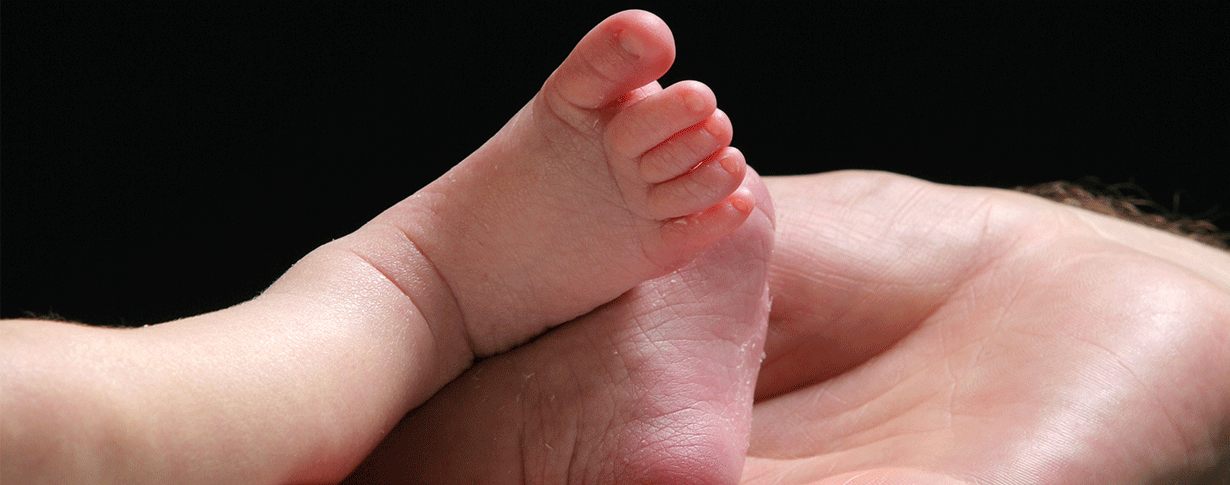What is the Heel Test? (Newborn Screening Tests)
What is the Heel Test?
Screening tests performed with a small amount of blood taken from the heel of newborn babies enable the diagnosis of some important and treatable metabolic and hormonal diseases at a time when disease symptoms do not appear yet. In these diseases, which result in growth and mental retardation, and even death, if not diagnosed early, the treatment to be started after the symptoms appear cannot reverse the damage that has already occurred. Therefore, the heel test is very important.
In case of detection of these diseases in the neonatal period, appropriate diet and/or drug treatment is initiated, allowing the healthy development of children. These tests are routinely performed on every newborn baby all over the world.
What Do Screening Tests Mean?
Screening tests enable the diagnosis of diseases when they do not show symptoms. In these diseases, which are common in the community and can be detected by simple tests, satisfactory results can be obtained with early diagnosis and treatment. The tests used in screening warn that there may be a health problem. It does not make a definitive diagnosis. After that, definitive diagnostic tests related to the suspected disease should be performed.
Since the aim is early diagnosis and treatment, screening tests are most often used in the neonatal period. Diseases that can be detected by triple test or amniocentesis in the prenatal period are different from diseases screened in newborns.
Which Diseases Are Screened in Newborns?
In 1962, Dr. Guthrie developed the phenylketonuria screening test to be used in newborns after the late diagnosis of phenylketonuria in his nephew. After that, a large number of screening tests were added to the list, which may vary according to each country, even different regions of the same country.
Diseases such as hypothyroidism, phenylketonuria, galactosemia, cystic fibrosis, homocystinuria, MSUD, biotinidase deficiency, congenital adrenal hyperplasia are diseases screened in the neonatal period in many countries.
With the newly developed Tandem-Mass spectrometry method, up to 20-25 metabolic diseases can be screened. These diseases are amino acid metabolism disorders, organic acidemias and fatty acid oxidation defects.
What is Metabolic Disease?
Congenital metabolic disease occurs as a result of disruption of the metabolic pathway due to enzyme deficiency. At the point where the disruption occurs, the leading products increase and/or the final product cannot be formed. Many organs are affected by this condition and symptoms appear. Since these diseases are often hereditary, their incidence increases in societies where consanguineous marriages are common.
What Kind of Disease Is Phenylketonuria (PKU)?
As a result of congenital enzyme deficiency, the amino acid called phenylalanine increases in blood and other body fluids. In babies who are normal at birth, brain tissue is damaged by the effect of phenylalanine, which cannot be broken down in the body as it is fed. Growth retardation, convulsions, small head circumference, skin rashes, light hair, skin and eye color, and bad odor in the urine are observed. In patients who are taken to phenylalanine-restricted diet therapy in the first days or weeks of life, the above-mentioned symptoms are prevented and the baby develops normally.
The incidence in Turkey: 1/4500. Newborns are screened with the Guthrie Test .
What Kind of Disease Is Hypothyroidism?
It is a hormonal disease that occurs as a result of insufficient hormone production by the thyroid gland in the neck. It is one of the most common causes of preventable mental retardation. Most babies with congenital hypothyroidism do not show symptoms in the newborn period. Over time, coarse facial appearance, constipation, umbilical hernia, growth and mental retardation occur. Patients diagnosed in the early period can develop normally with a simple and inexpensive drug treatment.
Its incidence in Turkey is around 1/2200. Newborns are screened with the neonatal TSH Test .
How is the Newborn Screening Test Performed?
The tests are often known as the ‘Heel Test’ since the blood sample required for metabolic scans of the newborn is usually taken from the heel. 9-10 drops of blood taken on special filter paper is sent to the central laboratory. Screening results are available after about a week.
What to do if a problem is detected as a result of the heel test?
If the test is positive for any of the diseases screened, further tests that can be performed on the baby’s blood or urine are required. These tests are more detailed, if a disease is diagnosed in the baby as a result of these, the baby should be referred to a pediatric endocrinologist or metabolic diseases specialist and treatment should be started before health problems occur.
Screening tests are planned very precisely so that metabolic problems are not overlooked. As a result, false positive results can be obtained from time to time. If the test is positive, more detailed tests should be done. Since these tests, which give quicker results, will often be normal, we recommend that families wait during this time without alarm.







